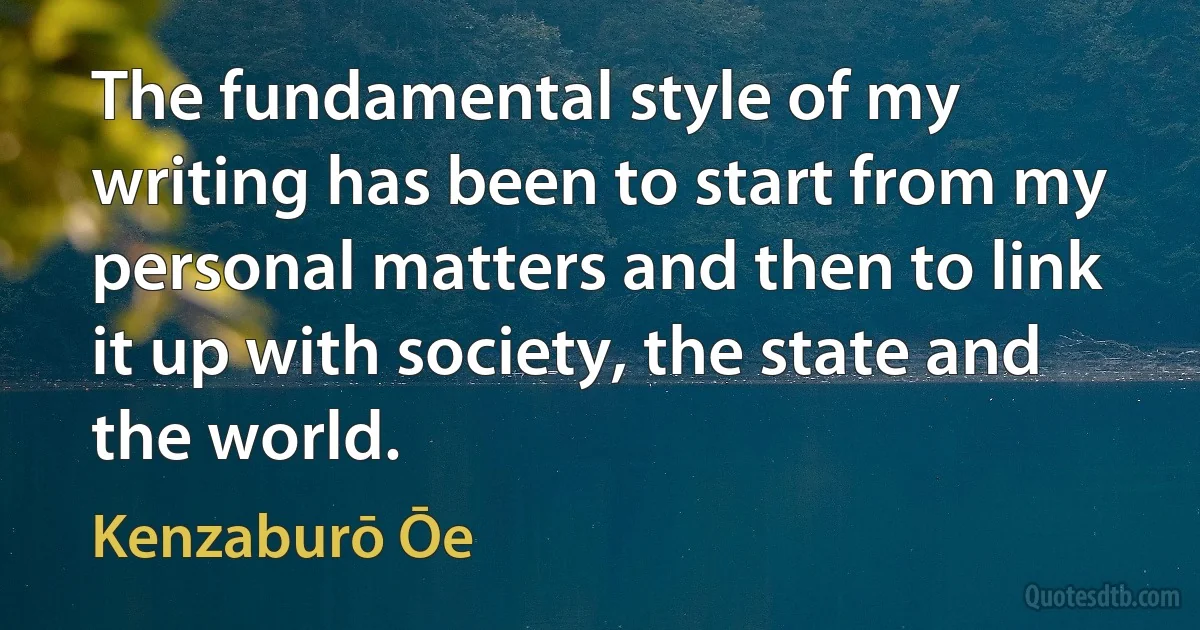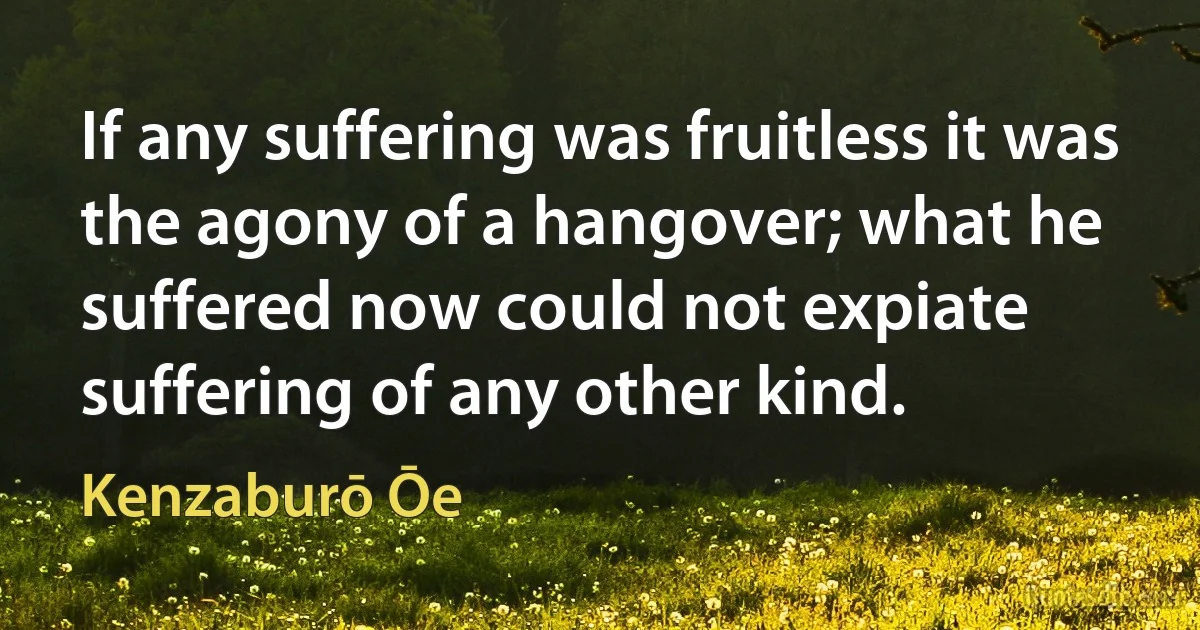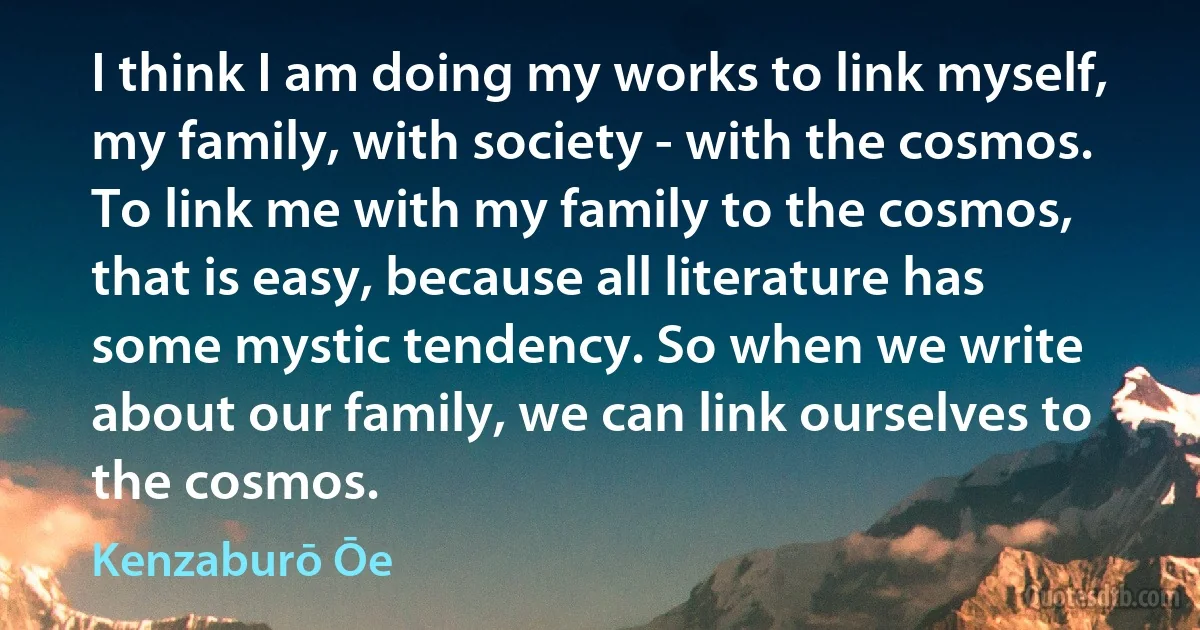Kenzaburō Ōe quotes
There could be joy in destruction, too, couldn't there? Isn't Jesus Christ's Second Coming supposed to occur only after a lot of unmitigated destruction? But again, human history is fraught with tragedies in which man spared no effort to destroy with millenarian joy, only to learn that no messiah appeared afterwards.

Kenzaburō Ōe
At the nadir of the post-war economic poverty we found a resilience to endure it, never losing our hope for recovery. It may sound curious to say so, but we seem to have no less resilience to endure our anxiety about the ominous consequence emerging out of the present prosperity. From another point of view, a new situation now seems to be arising in which Japan's prosperity is going to be incorporated into the expanding potential power of both production and consumption in Asia at large.

Kenzaburō Ōe
The destination of the soul: this is what I, led on by Nils Holgersson, came to seek in the literature of Western Europe. I fervently hope that my pursuit, as a Japanese, of literature and culture will, in some small measure, repay Western Europe for the light it has shed upon the human condition.

Kenzaburō Ōe



